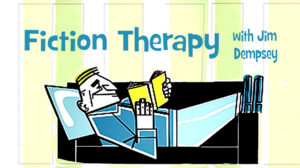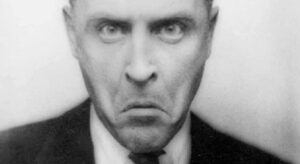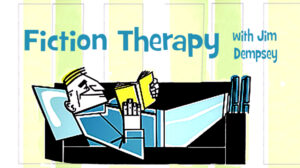Fiction therapy
Photo by Martin Neuhold on Unsplash
It’s easy to focus on what you don’t have enough of – uninterrupted time to write, money for conferences / coaches / editors, friends or family members who get what you do, saleable ideas. And what you have too much of – anxiety over the market / sales / our process / reader reactions, dejection at repeated rejection, too many indie publishing decisions to make. Writing can be such a mind f*@!.
What if you did something radical and explored the idea that you have what you need to be a writer? Could that be a way to lead yourself out of the not enough/too much loop?
IMAGINATION
Your What If engine makes this whole writing thing possible. Think about all you’ve created so far: people, families, clans, societies, worlds, rules of magic, technologies, animals, creatures. You’ve manufactured crises and then resolved them. All your imaginings don’t even make it to paper! You have such an abundance of imagination that you can’t contain it in your writing practice. You are imaginative—you have what you need to be a writer.
CURIOSITY
This is your Who, What does that mean, Why, and How engine. Curiosity makes you keep digging, keep exploring, keep looking for details and explanations. It leads you to follow story threads and research locations, manners of death, professions, rules of magic, physics of space flight, game theory, human psychology, animal behavior, archeology. As annoying as others may find it, you keep asking Why about the human condition. You are driven to figure out what pushes actual and fictional people to do what they do, choose what they choose, love what they love. You are curious—you have what you need to be a writer.
CAPABILITY
Whether you have the skills or knowledge you need to make your writing dreams happen right now, you have the ability to gain them. You are able to research what you need. You can study and practice your craft. Writing ability is not granted; it is developed by doing. So as Kelsey Allagood wrote on Wednesday (Lessons from the Climbing Wall), as you work on your skills, realize the struggle is ½ mental, trust your gut, and lean on others, your ability to reach your writing dreams will grow.
Think back over your writing life, what you’ve attempted, finished, learned, and risked. I hope you find that you’re more capable than your usual mind-habits admit. You are capable—you have what you need to be a writer.
HUMILITY
Assuming you aren’t the tiny group of readers who come to Writer Unboxed to reassure themselves that they knew all this already, you come here because there is always more to learn, room for improvement, a question you hadn’t thought to ask about your WIP that makes things click into place. Humility doesn’t preclude being confident in your writing, or even believing that you’re a gifted writer. It is the recognition that you’re not done growing and learning. You are humble—you have what you need to be a writer.
AUDACITY
You believe people should read your stories. People you don’t know and who don’t know you. How audacious!
Read MoreOK, I’ll admit it: I watch Virgin River. But only because my sister lives in the stunningly beautiful Vancouver area where it’s filmed. OK, that’s not the only reason. It’s probably not even the main reason. If I was to think about it, I’m sure I could come up with many reasons why I watch it.
One reason might be that it, a TV show, (as with so many other areas of life) can be a source of inspiration for writers, even Writer Unboxed contributors. For example, in a recent episode, the main character, Mel, was asked whether she was an optimist or a pessimist. She replied, “I would say half-optimist, half-realist. Which means I’m a hopeful control freak. There’s a lot of debate going on,” she circled her finger round her head, “up here.”
At first, it seems like a throwaway line, nothing too complicated, not even relevant for moving the storyline forward and it certainly doesn’t seem very inspirational. And yet, if you really look at it, really analyze it, there’s quite a lot in there.
She could be rejecting the popular binary perception of people being either optimists or pessimists. Or we could consider if a health care professional – even one on TV – should use a term like control freak. We could get into deep discussions on either of those topics.
I was more struck by the debate “going on up there” because that situation is familiar to me too. And I’m sure it’s one many of you can relate to as well. Writers often go back and forth over their stories in their minds long before they ever write them down.
Where ideas come from
The inspiration for those stories really can come from so many areas of life. What seems like a throwaway line to one person can be the seed of a great work to someone else. The line itself is perhaps not the inspiration, it’s more about where it can take the mind. In some people, that line can trigger a thought that leads to another thought that leads to another and so on until you have the beginnings of a story.
These are often the kinds of “what if” scenarios that Stephen King talks about in his memoir On Writing:
What if vampires invaded a small New England village? (Salem’s Lot)
What if a policeman in a remote Nevada town went berserk and started killing everyone in sight? (Desperation)
King adds that, “These were all situations that occurred while showering, while driving, while taking my daily walk.”
Covering all angles
Many of us will recognize these kinds of runaway thoughts, not just in the stories we want to write but in everyday life too. Such people are often referred to as overthinkers. Overthinkers will, for example, look at a likely future situation and go over every possible scenario of how it could play out. This will help them to be prepared if the person they confront says A or B or even Z and then how to react in each situation.
Some people see overthinking as a problem. “Don’t overthink it,” we’re often told. But a 2015 study suggested that people who overthink can be better problem solvers, while a more recent study points to overthinkers […]
Read MoreI wasn’t able to submit my regular monthly article in June. And I felt so bad about it because I only gave the Writer Unboxed team a couple of days notice that I wouldn’t fulfill my commitment. Of course, everyone at WU is extremely supportive, and I even gained some sympathy when I gave the reason why: I had just moved house.
I had totally underestimated what this would involve, despite having moved house many times in my life. Moving to a new house is regularly in the top five most stressful life events – often placed higher than a major illness and losing your job.
There’s a lot involved in moving house. There’s all the packing, and we shouldn’t forget the emotional aspect to that, of finding something tucked away in a drawer that reminds you of an earlier time or a loved one. You might be moving farther from your friends and have to go through the whole process of meeting new people. Maybe the children have to start a new school, and they probably won’t want to, so you have all the stress of upset kids. Then there are the practical things like changing address at so many different agencies, companies and organizations. Plus the physical labor involved in lugging boxes around and shifting furniture.
And that’s just a few of the things you have to deal with. I’ve just gone through the process and already I find it difficult to list everything involved. That’s what makes it so easy to underestimate – there’s just so much involved.
As our wonderful and understanding WU editor, Therese, told me, “Moving is such a huge undertaking, and it’s the ‘gift’ that keeps on taking time, energy and usually $$.”
Thankfully, writing is much easier. As Hemingway said, “All you do is sit down at a typewriter and bleed.”
Yep, not easy either.
To procrastinate or not
Novels usually start with an idea, and that’s often the easiest part of the process. Inspiration can come in a flash. Or you get that spark which smolders for a while until you get the burning need get the whole story down on the page.
That’s where the procrastination starts.
Do you just start up your computer and get tapping away with your standard word processing program or do you go for a more specialized software, like Scrivener? There’s no right or wrong answer to that, more a personal preference. The main thing is to get writing. And that’s not just about procrastination, there are some serious decision to be taken then.
One of the most important choices an author has to make is: who is going to narrate the story. Will you give readers an omniscient god-like point of view, looking down on your characters as if from above, seeing them all move around and interact. This is great for sprawling epics or stories with many characters because it gives readers an overview of the drama and it’s easier to switch from one character to another. Da Vinci Code by Dan Brown is an example of this. The disadvantage is that an omniscient perspective can feel distant, detached from the characters.
To get nearer to your protagonist, you might want to chose a close third-person perspective. In this case readers get the direct thoughts […]
Read MoreNote: This post does not contain a happy ending.
In Seattle, June is the cruelest month. Terrifying. Violent, too. A month where people rarely leave their homes, and if they must, they hurry from house to car, exhaling only once safely inside, windows rolled up, doors locked. In June, schools forgive truancy. Non-urgent appointments–dental check-ups, meetings with financial planners, eyebrow shaping–pretty much anything other than trips to the ER–are put off until mid-July.
Have you seen Hitchcock’s film, The Birds? Hitchcock himself claimed, “It could be the most terrifying motion picture I have ever made.”
I bet Hitchcock was inspired by Seattle in June.
Because of Poe’s quothing ravens, I’ve always found crows a bit sinister, but in general, I had no beef with any corvids, not really, until June 2013. While walking to get my daughter at school, a crow–out of nowhere–slapped me across the back of the head with a rolled-up magazine. At least, that’s what it felt like.
The June 2015 NPR story, “They Will Strafe You,” taught me these attacks are common. I was simply in the wrong place (near the crow’s fledglings) at the wrong time (June, fledgling season). This particular crow, undoubtedly sleep deprived and struggling with postpartum depression, deemed me a threat. Thus, she grabbed her June 2013 issue of The New Yorker, or perhaps The Economist, or maybe it was The New Republic, and whacked my head.
I began to fear another strafing.
“No eye contact, people!” I’d yell at my children, my husband, my dog, whenever I saw a crow. “You make eye contact, and THEY WILL STRAFE YOU!”
The whole world was starting to feel unsafe, and not just in June. Year-round, I felt the beady eyes of crows upon me.
Fast forward nine (terror-filled) years, and we arrive at Spring 2022.
At the end of May, bunion surgery left me horizontal with my sad, swollen foot in the air. For weeks, I crutched only between the TV room sofa and my Room of Convalescence. Back and forth, forth and back.
Bedridden and homebound, I could not escape their terrible cawing, could not ignore the murderous shadows that darkened my windows. Twenty-three days post-op, loopy with a weird mix of boredom and fatigue, tired of my POW status, I raised my fist at the crow-laden spruce in my yard.
“Nevermore!” I shouted. “NEVERMORE!”
After Googling “what do crows eat,” (the answer: “pretty much anything”) I crutched to the kitchen and found a box of stale, generic-brand Wheat Thins. […]
Read MoreMy friend’s 15-year-old son has just had his heart broken for the first time. He’s also just written his first song. It’s about a guy who got his heart broken. He’s a talented musician, so it will probably be a pretty good first song.
Many wonderful creative works have come from strong emotions. Aristotle wrote that everyone who “attained excellence in philosophy, in poetry, in art and in politics, even Socrates and Plato, had a melancholic habitus; indeed some suffered even from melancholic disease.”
In a recent episode of the excellent Happiness Lab podcast, Helen Russell, author of How to be Sad: Everything I’ve Learned About Getting Happier by Being Sad Better, called sadness a creative emotion. “When all is going well, there’s little need to do anything different. When we’re sad, we think about our next step.”
That next step could be organizing a fun night with your friends, looking for a new job or throwing your ex-lover’s record collection in a lake. Or it could be to write a poem or a story, paint a picture or craft something from clay.
Russell also says that we should try to accept sadness as a part of life. If we can accept it, not be afraid of sadness, that acceptance can enrich other parts of our lives . If you’re not afraid of sadness, then you won’t hold back in other parts of your life, you won’t be afraid to give more, and so your happy times could be even happier. Sure, the sadness might come again, but that is part of you, part of life.
Let it all out
We need to accept our sadness and anger and other strong emotions, and maybe even learn to enjoy some of the things they bring us as individuals, like the idea for a new novel or the inspiration for a love song.
Love, in general, not just heartbreak, can motivate us to be creative. Think of all those songs from people who just wanted to tell the world about their love. And all those novels too. There’s F. Scott Fitzgerald’s Tender is the Night. And The Mandarins by Simone de Beauvoir is based on her affair with the writer Nelson Algren.
And there are too many examples from poetry, but Elizabeth Barrett Browning deserves a special mention. She wrote a series of poems to her husband, which ended up in the collection, Sonnets from the Portuguese. It includes, How do I Love Thee. “Let me count the ways.” Swoon!
Then there is anger.
There are some brilliant angry comedians. Bill Hicks remains my personal favorite, and Larry David has managed to apply his particular brand of rage to fill 11 seasons of Curb Your Enthusiasm.
Intensity
A group of psychologists in the Netherlands showed that people experiencing anger brainstormed ideas in a more unstructured way than those who were not angry, and that this type of flexible thinking produced more creative results. This makes sense since anger can be an invigorating kind of emotion. It really does get the blood moving and gets us thinking in irrational ways, which, in the right conditions, can lead to some great creative works.
Protest songs are obvious examples of anger used in creativity, and Nina Simone’s Mississippi Goddam is one of the greatest, […]
Read MoreNOT writing as a whole. Neither of us would be here if we wanted to give up writing. But what if you gave up an idea that is holding you back? Might it free you, your writing, your creativity?
I have to finish this manuscript before I can write the next story.
What if you didn’t? What if you moved on to another story? Just tested it out. You can still come back to the old manuscript. But what if the self-imposed idea that you have to finish something before you start the next thing is preventing you from working both on the old story and on the new story? Maybe you don’t like the old thing anymore, or the story isn’t quite working and you can’t figure out how to fix it, or it reminds you of a bad time in your life, or any other reason. If you gave yourself permission to put it aside would that be so wrong?
Would that make you a quitter? Or would that make you an adult who has looked at the options and decided to go another way? Laying aside a writing project that isn’t working / that you aren’t working on might be energizing. It might even help you make your way back to that project and finish it.
This is what I’m telling myself about the trilogy I’ve been working on for several years. I indie published the first book, fully drafted the second, and mostly drafted the third. And I’m just not working on them. But I won’t let myself move on, either, because I have to finish them. It was on a walk a few days ago that I asked that scary question: What if I gave up the idea that I had to complete the trilogy before I wrote anything else?
I’m close to giving myself permission to put them aside, at least for now, so I can start the next story idea. It might take until the end of this post, but I’m working on giving up this idea.
I have to find The Best System for Writing.
It can ease the anxiety of writing to put all your trust in an expert who has a system they say always works. But when that system doesn’t work for you, or it stops working for you, or some new expert comes with a Shiny New System that throws your system into question, or the novel you wrote using The Best System is rejected, that increases your anxiety. And you think it’s your fault–either for not following The Best System well enough or because it must not be The Best System and now you have to find the real Best System.
Writing is an anxiety-producing endeavor. No system and no writing advice will help you avoid it completely. And no system or writing advice can guarantee commercial success. Not even our own beloved Don Maass’. When I was in the Writer Unboxed Breakout Novel Dissection Group, every book we read violated at least one of his characteristics of a breakout novel.
Giving up the idea that there is a Best System can set you free to pick up and run with the writing advice that gives you energy and makes your imagination churn with ideas, and […]
Read MoreEvery hero has a flaw, and that is a major element drives stories to their conclusions. In the meantime, the character goes through all many trials, overcomes all several obstacles to reach a point of self-realization where they can change and become a different person.
Sometimes, however, the flaw leads to the downfall of the character. Aristotle called this the tragic flaw, often referred to by the literary term hamartia, although that is also taken to mean the error the character makes that leads to the tragic end.
Willy Loman in Death of a Salesman is a classic example of a hero with a tragic flaw. Loman has many flaws, but his pride and refusal to accept the reality of his situation and his obsession with success and achieving the American Dream leads to him to deliberately crash his car.
It’s not clear from the story if he does this because he can no longer take his repeated failures—and therefore has accepted his flaw of denialism—or to simply to make sure his sons get the insurance payout on his death, which would suggest he never accepted his flaw.
So some characters don’t want to overcome their flaws. They persist regardless. And some even work hard to maintain them. Don Draper in Mad Men is a good example of this. He goes to great lengths to sustain the illusion of the persona he had created for himself.
Temporary answers
Clearly, not all flaws are tragic. Many characters change to become better people, but that’s only at the end of the story. Before that, they struggle with their flaw, fight against it or deny it’s even there. As the story progresses, most characters will employ short-term solutions. They might hit the booze, take drugs or run away from their tricky situations.
While these tactics solve the problem that day, night, maybe even for a few weeks or longer, the same issue will inevitably return, and often magnified as time is running out—a great technique to develop suspense in a story. Or the problems accumulate and cause increased pressure for the character, leading to more and more obstacles for the hero.
So, it’s worth being clear about what your character’s flaw is and how they deal with it.
My previous article of the wonders of your character’s world view can help you identify the flaw. But how can you make the best of it to raise that suspense and pressure in the story?
The first step is to make a list of the short-term solutions your character could try. Usually that’s some kind of avoidance. It doesn’t have to be as dramatic as alcohol or drug abuse; it could just be walking out and slamming the door in the middle of an argument.
Build suspense
Next, look at the effect of these solutions on the character. How did they help in the short term? Did some smooth-talking from the character addicted to gambling buy time from the angry bookie? Did the corrupt cop’s tipoff at the right time buy some temporary favor from the mafia boss? Or did these actually make things worse?
Imagine, for example, a jazz singer with stage fright. She tries many ways to deal with her anxiety, such as sitting at the back of the club, near the door, […]
Read MoreI’m sure we’d all agree that the books we buy should be good quality products, just like anything else we buy.
For me, that means a book should have an attractive cover that tells you something about the story; the text should have a presentable layout that makes it easy to read; the words on the page should also flow well and have acceptable standards of punctuation, spelling and grammar; and a novel should have a compelling story, something that’s going to make us stick with it to the end.
The author, however, cannot be expected to be responsible for every aspect of these qualities. It takes a different kind of talent to produce an attractive cover and to design a layout with a readable typeface with, for example, no widows and orphans.
As for the other two aspects—text that follows recognizable conventions to a specific standard and an engaging story—it could be argued that these are the sole responsibility of the author.
Tools of the trade
Punctuation, grammar and spelling are undoubtedly important aspects of a good book, and arguably essential tools for any writer. Social media is full of examples that make fun of common mistakes.
“I saw your dog chase a man on a bicycle.”
“That can’t be true, my dog doesn’t have a bicycle.” LOL.
In these days of trolls and general online negativity, authors can become easy targets for derision, whether warranted or not. E.L. James, the author of Fifty Shades of Grey, was slated on social media when the book was first (self-)published by people pointing out, for example, the overuse of ellipses, the lack of apostrophes and the number of typos.
But even established writers make mistakes, which is why every quality publisher and self-publisher hires an editor to look over all the text in all their books. And then hires a proofreader before the book goes to print. These publishers want the best quality product for the people who pay their hard-earned cash for that novel.
Built-in knowledge
Few of us have great grammar skills since many English language education systems decided some decades ago that we learn grammar inherently anyway, so there was no need to teach us all those boring old rules.
That’s true if you think, for example, about the order of adjectives. We instinctively know that the long, brown, wooden table sounds better than the wooden, long, brown table.
However, that doesn’t cover everything. A frequent error I see from English language writers from all over the world is the confusion between past simple tense and past perfect tense. More people get that “wrong” than “right.”
Then there’s starting a sentence with the -ing participle of a verb, such as:
Opening the door, he walked across the room and grabbed his rifle.
The -ing participle implies a continuous action so, in this case, the character is still opening the door while he also walks across the room and grabs his rifle. It would be better as:
He opened the door, walked across the room and grabbed his rifle.
Inclusion
There are many reasons why people’s writing skills are not always up to the standard expected by quality published books. People from marginalized backgrounds often don’t have the same opportunities as others in society. As a result, when they submit an uncorrected manuscript […]
Read MoreI had a friend who turned out to be a criminal, and a big time crook at that. He was pretty much a gang leader, involved in robberies, drug smuggling and murder.
When I found out about it, I did what you would probably do too. I wrote about it. To the police. And my gang boss friend found out. Somehow, he had managed to get hold of the letter I’d sent. Which I’d signed. I denied it, of course. Anyone could have written that. He was cool about it, which scared me more. He let my imagination run with all the possibilities—none of them good. And he made we wait to find out which one he’d settle for.
But I woke up before it got that far.
There is a theory that, once we started telling stories (about 40,000 years ago), our dreams developed to become more storylike and therefore worth telling other people about.
Two things strike me about this theory. The first is that my dreams are often way too weird to be understood as any kind of story. The second is that, while the dreamer might think that this dream is worth recounting, it’s not always that interesting to listen to. It means something deep to the dreamer, but not the listener. It’s a bit like: you had to be there, and, of course, nobody else was there.
And yet, there are writers who can take that dream as source material and make something magical from it.
Inspiration
Mary Shelley’s Frankenstein is a famous example. Stephen’s King’s Misery and Dreamcatcher are both said to be inspired by the author’s dreams, while nightmares informed the work of H.P. Lovecraft Edgar Allen Poe and Robert Louis Stevenson’s The Strange Case of Dr. Jekyll and Mr. Hyde.
Dreams are not only useful to horror writers. They can often have a spiritual element too, which can lead to works like Jonathan Livingston Seagull by Richard Bach. And dreams can be wonderful for the imagination, and so we get novels such as Stuart Little by E.B. White.
This is not to say that the authors dreamed those entire stories. It’s more that an interesting idea arose in the dream or there was some imagery or an interesting thought that then inspired the creative process. It’s these little nuggets that you can then use in your writing, either to develop a scene or a whole novel.
Dream work
It’s become something of a trend now to use dreams in other artistic pursuits, known as dream work. Several big name movie stars have hired dream coaches. Kim Gillingham works with many of them, and uses techniques from Jungian psychoanalysis and method acting to offer creative professionals “access to the rich and undiscovered content of the unconscious, allowing artists of all disciplines to create more authentic work.”
There are many techniques we can all use to inspire and enrich our work.
A dream journal is an excellent way to record and consider your dreams. David Corbett wrote on here recently about his experiences with dream journaling.
Writing down your dreams just after you wake up is probably the best way to remember them, although your alarm clock won’t help much as an abrupt awakening can often wipe most of that dream clean […]
Read MoreA troubled teenage boy takes a claw hammer to the dry wall in the family’s living room. His reasoning is that he’s looking for the source of a drip. He knows there are pipes running through this wall, but he also knows they carry gas, not water, and so are unlikely to drip.
His parents are visiting his grandmother. He didn’t go because he argued that grandma was “boring” and “dumb,” and his mother and father, tired from so many such arguments, relented and let him stay home. He soon has a substantial hole in the wall, and his boots are grinding the crumbled plaster into the polished wooden floor.
I had to discuss this scene with the author as part of our ongoing editing and coaching program. I know that much of this person’s story is based on real events in his life, but he’s not writing “yet another misery memoir,” as he puts it. He wants to use techniques from fiction writing to give his narrative more of a structure and to introduce elements that he feels will make his point stronger.
This is autobiographical fiction, more commonly known as autofiction, and made popular in recent years with writers such as Rachel Cusk, Marguerite Duras and Karl Ove Knausgård. In an article for The Guardian newspaper, the author Nina Bouraoui described autofiction by saying that, “It may not be the absolute truth the author is telling, but it is her truth as she lived and experienced it.”
A version of truth
Not everyone is positive about the rise of autofiction. It is seen as the literary equivalent to a selfie Snapchat with filters, more evidence of increasing self-obsession rather than a genuine art form. But even memoir has struggled to be taken seriously as a genre, as the authors—especially if they are women—can be judged more for their experiences than for their writing.
And yet real life stories, or story based on real events, whether books or movies, have mass appeal, as publishers and Hollywood producers are aware. Could somebody really have lived through all these events in their life and survived, we wonder. And not only to survive but to still have the determination and persistence it takes to write several thousand words while reliving the experiences all over again. Who wouldn’t be impressed?
How much fiction enters into these stories varies widely. I worked with one author who wrote about her time as a teenage runaway in the context of a zombie apocalypse because that’s how she experienced it—everywhere she turned there was another predator wanting another piece of her. The conceit worked perfectly as a real-life zombie story.
Working with these authors takes on another dynamic too. When I’m editing fiction, I can be clear that I am talking about the words on the page. Any criticism is not personal but purely about the work. In that way, both the editor and the author can take some distance from anything that might have happened in the real world and objectively discuss the content of the novel, even if they are writing—as we are so often told—what they know.
The need for compassion
With autofiction, it’s a little different. It takes a touch more sensitivity along with a willingness from both the author and editor to […]
Read MoreIt’s approaching that time of year when many of us reflect on what has passed in the last 12 months and what might come in the next.
But it’s not only at this time of year that we have thoughts of the future and what might or might not happen. What shall we have for dinner tonight? What shall we do this weekend? Where shall we go on vacation next year? Where do I see my career in five years’ time? Or, these days, maybe it’s more like: will we have a vacation next year?
Psychology is increasingly recognizing this preoccupation with the future and adapting and developing therapies to take our thoughts of the future into consideration. Previously, therapists were more concerned with our pasts—the relationship with your mother, for example. But current thinking sees that the real issues arise when we use past events to inform what might happen in the future.
Past experiences can give us a distorted view of the future. We make assumptions, wonder if it will happen again, what to do if it does. We can all recognize these situations where we start to tell our own stories about a future situation. “Next time, I won’t sit back and take it. I’ll tell him exactly what I think.”
These projections can lead to anxiety and avoidance behavior that can affect how we will act in the future, even before any such event has happened, something that might never happen.
Even if it’s something positive, something you’re really looking forward to, you can start to anticipate what will happen and have expectations that can lead to disappointment if the experience falls short.
Which is why we get advice about living in the moment, which, in this context, really just means that past events don’t need to affect how you behave now or in the future.
Page turners
But that’s easier said than done, of course, especially if this preoccupation with the future is such an intrinsic part of being human.
And this obsession with the future is reflected in stories too. Stories are all about what happens next. Where is this heading? Will Dorothy get home to Kansas? Will George Bailey realize how wonderful life really is and come back from the brink?
Literature—any art for that matter—is about exploring the challenges of the human condition, the things that make us uniquely human. And there are obvious examples of when literature examines our obsession with the future: in science fiction and dystopian and utopian novels.
But it could be argued that every novel is concerned with what will happen next and that a preoccupation with the future adds that element that—I would say—no story can do without: suspense.
That doesn’t mean waiting to find out who the killer is or if the hero will escape from the clutches of the evil antagonist. Suspense is present in every story to drive the narrative forward.
And suspense basically means offering the readers a question so that they will keep turning those pages to find the answer. There will be the overarching dramatic questions that drive the narrative right to the end: will Romeo and Juliet finally be together? Will Indy find the ark?
Crucial questions
To build suspense throughout the story, however, there needs to be a series of smaller questions, some […]
Read More















